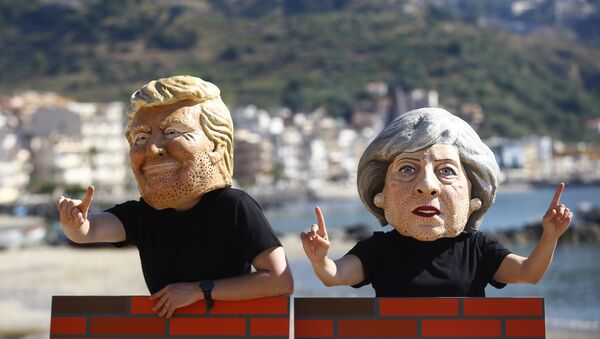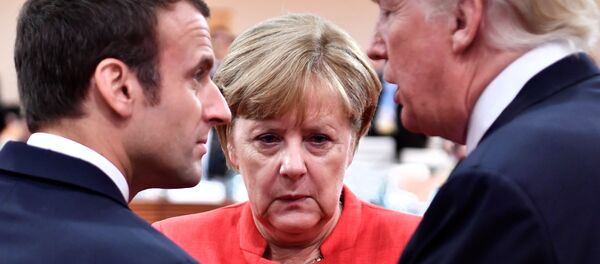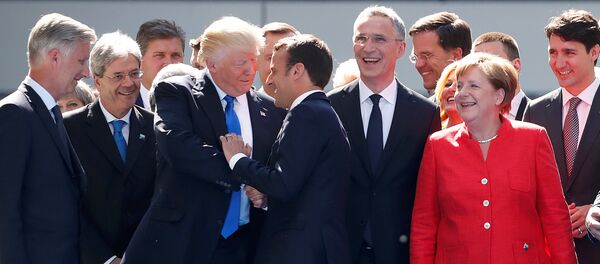Sputnik: What is your take on the alleged British proposal to counter an alleged Russian threat? Does it come as a surprise to you?
Mr. Rasmussen: The highest agenda is going to be the trade issues going on right now and evolution of a potential trade war. So, I think, those are going to be the primary things. After that, there may be discussions as far as North Korea, maybe, also there are going to be discussions on the Russia relationship as well. I think these this whole thing with Mrs. May will be side discussions, side meetings – maybe she will try to bring it up.
READ MORE: Kremlin on Trump's Call for Russia's G8 Return: We Are Focused on Other Formats
Sputnik: What is your take on what Theresa May is bringing to this summit? Do you think she stands with the other European members that are attending? What do you think about her relationship with Donald Trump?
Mr. Rasmussen: Yes, the relationship with her and Mr. Trump is – with almost anyone I think –is challenging. He’s unpredictable. And his mode of operation is that he likes to be, even in this business environment, he likes to be unpredictable. I think that’s frustrating for a lot of the other leaders, especially the backing down of international agreements. That has really gotten people upset, and the trade war.
What is Theresa May bringing to the table here? I don’t think she’s aligning completely with the rest of Europe. She’s got a lot of issues going on, Brexit, the whole complete failure of the Salisbury, Skripal’s case, backing the US with the false-flag chemical attack in Syria. She’s got a lot of issues and she’s got a lot of challenges, I think. I would be surprised if she still prime minister next year some time.
Sputnik: One of the things she’s going to be discussing at this meeting is she wants to have a special response, international rapid response unit, to deal with Russian assassins. Is that going to be one of the biggest deals during this meeting?
READ MORE: WATCH Protests in Canada Ahead of G7 Summit Amid EU-US Row (PHOTOS, VIDEOS)
Sputnik: On the other hand, we have Europe. And I don’t know if she is not really in sync with them. To what extent do you think the potential trade war with the US, between the US and Europe, will actually affect whether or not Europe drops sanctions on Russia?
Mr. Rasmussen: I don’t know if they are going to at this point, because the US will probably put strong pressure on them. … The businesses are losing like a hundred billion euros a year. Then the sanctions and [threats] on the Iranian side and on the trade side, it’s not just Russia. It’s also backing out of the Iran deal and threats of sanctions related to that, and then a trade war here. So we are talking about hundreds of billions of euros a year of lost revenues for European businesses. At some point governments need … look at reality.
I think the US is becoming more isolationist; and I think, the UK is being forced into that role as well. Hopefully the Europeans will stay together, although they’ve got internal challenges as well. But I think you’ll see a gradual softening of the relationship between the rest of the EU and Russia. They have got to look out for their own citizens, their own security.
Sputnik: The Europeans have asked to be relieved from the sanctions, the secondary sanctions that would apply to European companies. What do you think is going to come of that? Do you think that the Europeans will end up having to pull out of the JCPOA?
The views and opinions expressed by Earl Rasmussen are those of the speaker and do not necessarily reflect Sputnik's position.



